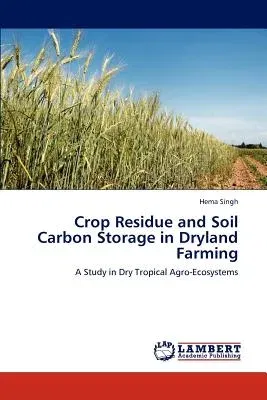Hema Singh
(Author)Crop Residue and Soil Carbon Storage in Dryland FarmingPaperback, 22 March 2012

Qty
1
Turbo
Ships in 2 - 3 days
In Stock
Free Delivery
Cash on Delivery
15 Days
Free Returns
Secure Checkout
Print Length
156 pages
Language
English
Publisher
LAP Lambert Academic Publishing
Date Published
22 Mar 2012
ISBN-10
3848421445
ISBN-13
9783848421442
Description
Product Details
Author:
Book Format:
Paperback
Country of Origin:
US
Date Published:
22 March 2012
Dimensions:
22.86 x
15.24 x
0.91 cm
ISBN-10:
3848421445
ISBN-13:
9783848421442
Language:
English
Location:
Saarbrucken
Pages:
156
Publisher:
Weight:
235.87 gm

